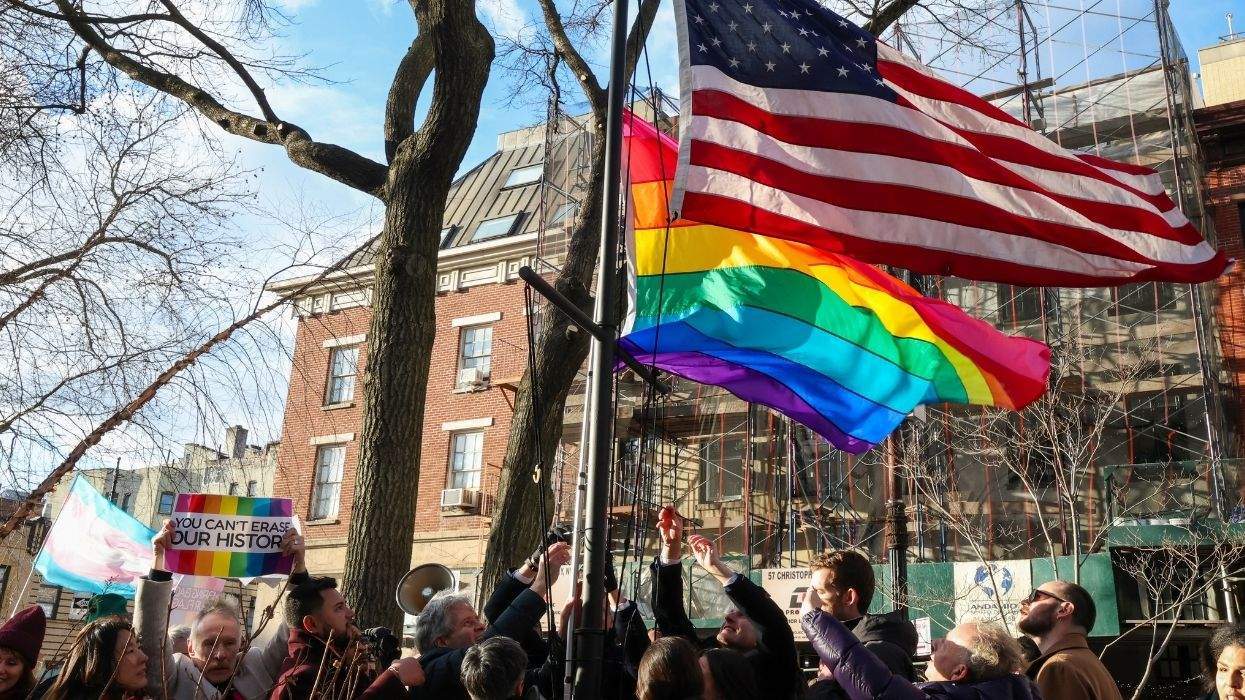In her annual "State of Victory" speech in Washington, D.C., this weekend, Victory Institute CEO Annise Parker rejected the pervasive narrative that Black voters won't vote for an LGBTQ candidate, according to the Washington Blade.
Parker, who became Houston's first lesbian mayor in 2010, spoke of a history of Black voters being accused of homophobia. But she leaned into the idea that's resurfaced in light of the allegation by gay presidential candidate Pete Buttigieg's campaign's internal focus group that he's polling low with Black voters because they won't vote for an LGBTQ candidate.
"What was once whispers are now New York Times stories and Washington Post columns," Parker said. "Right now some pundits and opposition candidates are pushing the lie that Black voters will not vote for LGBTQ candidates. It is wrong."
"It is wrong factually, according to opinion polls," she added. "It is wrong morally, because it treats the Black community as monolithic and ignores LGBTQ Black voices, like those in the room. And it is wrong empirically because we see LGBTQ candidates winning the hearts and minds of Black voters across this nation."
"Real harm is done by these narratives; it can discourage us from running in certain communities, religious, racial, ethnic or otherwise, allowing these myths to fester even further," Parker continued in her speech. "It is the elected officials in the room and those we need to run in the futur, who will eventually dispel these myths."
As a counter to the harmful stereotype that Black voters are homophobic, Parker offered up recent examples of LGBTQ people voted into office including Chicago Mayor Lori Lightfoot, who won with 73 percent of the vote, and Alabama State Rep. Neil Rafferty, who won in a primarily Black district and became the first openly gay male elected official in the state.
Presidential candidate Sen. Kamala Harris also recently rejected the trope about Black voters in an appearance on The Situation Room With Wolf Blitzer.
"I am never going to buy into that trope, and I think it's a trope that has evolved among some Democrats to suggest that African-Americans are homophobic," Harris told Blitzer.
"Bias occurs in every community," Harris said. But it's wrong to think anti-LGBTQ sentiment is any more cemented in racial minority groups, she added.
"The reality is that, sadly and unfortunately in all communities, bias occurs, and in particular homophobia and transphobia," she said. "I've spent my entire career fighting against it. So I know it is a fact."
"When you talk about the African-American community, it is not a monolith," Harris said. "It includes gay, transgender, LGBTQ people within that community who are loved by their community, loved by their family, like every community."
Watch Parker's speech below.
















Charlie Kirk DID say stoning gay people was the 'perfect law' — and these other heinous quotes
These are some of his worst comments about LGBTQ+ people made by Charlie Kirk.